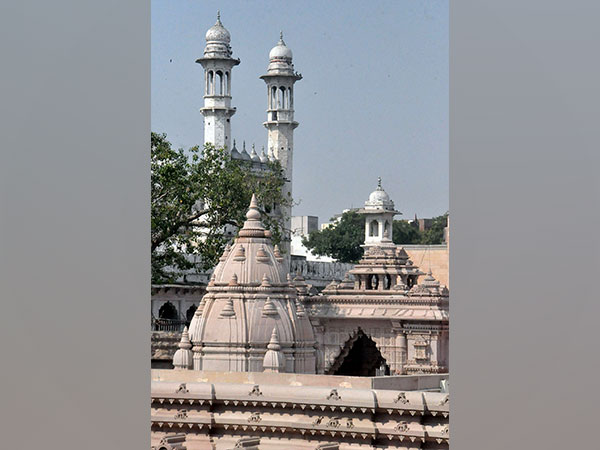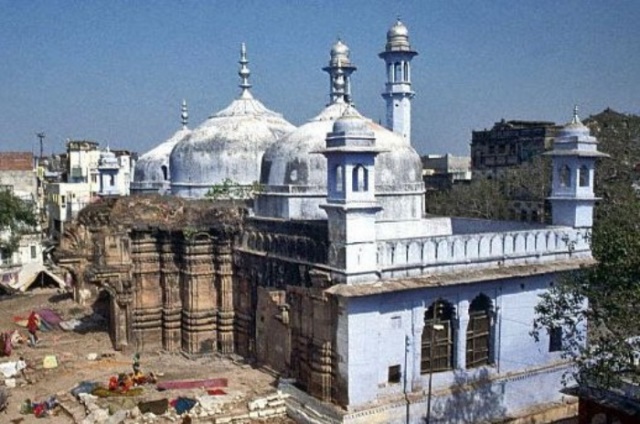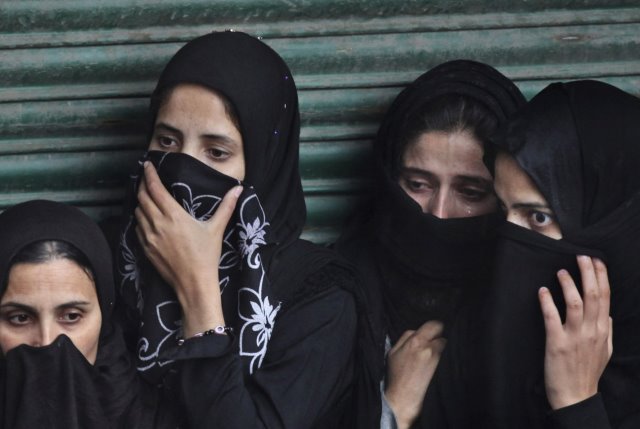The Supreme Court on Monday refused to stay the Allahabad High Court order, which had upheld the Varanasi district court’s order allowing Hindus to perform prayers of deities inside the ‘Vyas Tehkhana’, southern celler of Gyanvapi mosque.
A bench of Chief Justice of India DY Chandrachud and Justices JB Pardiwala and Manoj Misra ordered the Hindu and Muslim sides to maintain the status quo at the Gyanvapi premises to enable both communities to offer ‘puja’ and ‘namaz’.
The status quo should not be altered without the permission of the apex court, said the bench.
The bench took note that the access to the Tehkhana where the ‘puja’ is held and the area where Muslims pray are different.
The top court said that Hindus would enter from the South and pray in Tehkhana and Muslims would enter from the Northern side for prayer.
“At this stage, bearing in mind the fact that namaz is being offered by Muslim communities unhindered after the district court and High Court orders and that prayers in Tehkhana are limited to the Hindu priests, it is important to maintain the status quo, so that both communities can perform religious worship in above terms,” the bench stated in its order.
During the hearing, the apex court also noted the Muslims were offering prayer unhindered and the offering of ‘puja’ was confined to the area of Tehkhana only.
“Are we correct to say that prayers in the South (cellar) do not impact (Muslim) prayers In North. If this is correct.. we can say let no further change happen in the status quo further. We say let namaz continue and worship in the south cellar can continue,” said CJI Chandrachud during the hearing.
It further issued notice to Hindu plaintiffs on an appeal of mosque committee challenging an order of Allahabad High Court over ‘puja’ of deities inside the ‘Vyas Tehkhana’.
The top court now posted the matter for hearing in July.
Mosque committee filed appeal against High Court order contending that the administration was acting in ‘hot haste’ soon after the Varanasi Court’s order to perform the ‘Puja’ at night.
On January 31, Varanasi district court allowed the Hindu side to offer prayers in the southern cellar of Gyanvapi mosque. The court directed the Varanasi district magistrate to make arrangements within seven days for ‘puja’ to be performed by the Hindu side and a poojari nominated by Shri Kashi Vishwanath Temple Trust.
After the order of the court, ‘puja’ and ‘aarti’ are being performed there.
The district court has issued the order on the plea of head priest of Acharya Ved Vyas Peeth temple, Shailendra Kumar Pathak Vyas, seeking worship of Shringar Gauri and other visible, and invisible deities in the cellar of the mosque. Vyas is the scion of the family which was performing ‘puja’ in this cellar till December 1993.
The plea had said Vyas’s maternal grandfather, priest Somnath Vyas, used to perform prayers there till 1993 when the cellar was closed by the authorities.
The ASI survey, ordered by the same court, in connection with a related case, suggested that the mosque was constructed during Aurangzeb’s rule over the remains of a Hindu temple. (ANI)
For more details visit us: https://lokmarg.com/








